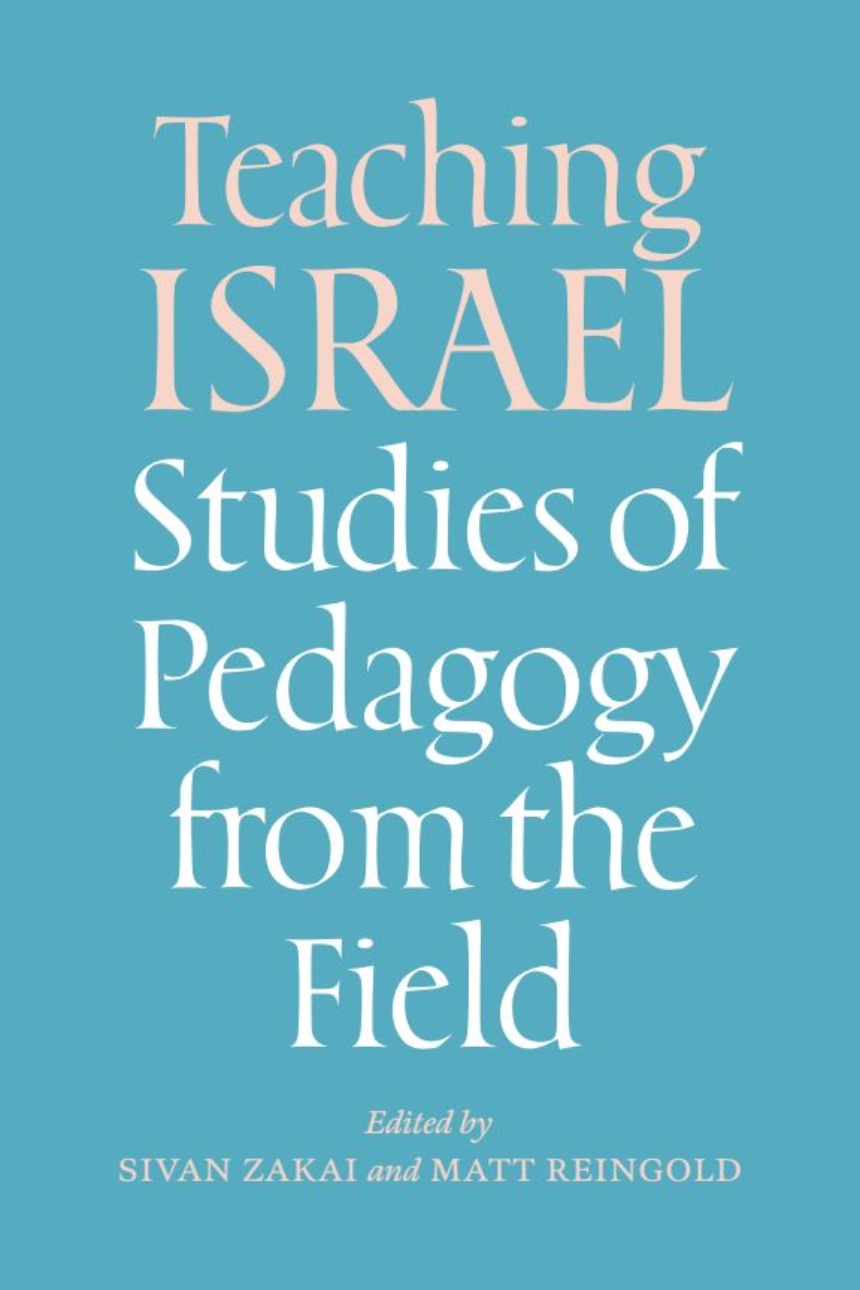9781684581177
9781684581160
9781684581184
An edited volume that grapples with the complex issues and conflicts that face instructors developing curricula about Israel.
Jewish Americans are divided in their views on Israel. While scholars have outlined philosophical principles to guide educators who teach about Israel, there has been less scholarship focused on the pedagogy surrounding the country. This book resituates teaching—the questions, dilemmas, and decision-making that teachers face—as central to both Israel studies and Israel education. Contributors illuminate how educators from differing pedagogical orientations, who teach in a range of educational settings learn, understand, undertake, and ultimately improve the work of teaching Israel. The volume also looks at the professional support and learning opportunities teachers may need to engage with these pedagogical questions.
Jewish Americans are divided in their views on Israel. While scholars have outlined philosophical principles to guide educators who teach about Israel, there has been less scholarship focused on the pedagogy surrounding the country. This book resituates teaching—the questions, dilemmas, and decision-making that teachers face—as central to both Israel studies and Israel education. Contributors illuminate how educators from differing pedagogical orientations, who teach in a range of educational settings learn, understand, undertake, and ultimately improve the work of teaching Israel. The volume also looks at the professional support and learning opportunities teachers may need to engage with these pedagogical questions.
384 pages | 4 halftones, 4 tables | 6 x 9 | © 2024
Mandel-Brandeis Series in Jewish Education
Education: Curriculum and Methodology, Philosophy of Education
Reviews
Table of Contents
List of Illustrations
List of Tables
Acknowledgements
Introduction (Sivan Zakai)
Section I: The Reflective Teacher
1. Teaching about Israel as a Modern State of Migration: Learning with Diverse, Inner-City, Nontraditional College Students in New York City (Robin A. Harper)
2. Navigating Complexities: Teaching Israel Studies in the Professional Military Education Context (Amin Tarzi)
3. Voices on the Page and in the Room: A Pedagogy of Jewish Text Study in Israel Education (Joshua Ladon)
Section II: Using Student Voices to Examine Teacher Choices
4. Complex Texts and Complex Identities: Helping Students Navigate Personally and Emotionally Resonant Topics about Israeli Society (Matt Reingold, Alexa Jacoby, Benjamin Day)
5. Into the Intimate Discourse: Rachel Korazim as an Exemplary Israel Educator (Diane Tickton Schuster)
6. Knowledge, Connection, and Stance: Toward a More Enduring Israel Engagement (Jonathan Golden and Yoni Kadden)
Section III: Navigating the Teaching of Politics and the Politics of Teaching
7. Cultivating Critical Inquiry about Israel: Teaching Israel in Our Time (Bethamie Horowitz)
8. Activism and Identity: Teaching (About) BDS in the Israeli-Palestinian Relations Classroom (Mira Sucharov)
9. Barriers to Entry: Exploring Educator Reticence for Engaging with the Israeli-Palestinian Conflict (Keren E. Fraiman)
Section IV: When Teachers Learn
10. “What are We Doing?”: The Pedagogical Questions of Jewish Early Childhood Educators and Teacher Educators (Sivan Zakai and Lauren Applebaum)
11. Teaching Who They Are: Understanding Teachers’ Connections with Israel and How Those Enter into the Classroom (Laura Novak Winer)
12. Nurturing Jewish Consciousness: Utilizing Values at Synagogue Supplementary Schools to Teach Israel (Ezra Kopelowitz and Abby Pitkowsky)
13. A Kite on a String and a Box that Opens: The Challenges of Transformative Professional Learning for Israel Educators (Lauren Applebaum)
Conclusion (Matt Reingold)
List of Tables
Acknowledgements
Introduction (Sivan Zakai)
Section I: The Reflective Teacher
1. Teaching about Israel as a Modern State of Migration: Learning with Diverse, Inner-City, Nontraditional College Students in New York City (Robin A. Harper)
2. Navigating Complexities: Teaching Israel Studies in the Professional Military Education Context (Amin Tarzi)
3. Voices on the Page and in the Room: A Pedagogy of Jewish Text Study in Israel Education (Joshua Ladon)
Section II: Using Student Voices to Examine Teacher Choices
4. Complex Texts and Complex Identities: Helping Students Navigate Personally and Emotionally Resonant Topics about Israeli Society (Matt Reingold, Alexa Jacoby, Benjamin Day)
5. Into the Intimate Discourse: Rachel Korazim as an Exemplary Israel Educator (Diane Tickton Schuster)
6. Knowledge, Connection, and Stance: Toward a More Enduring Israel Engagement (Jonathan Golden and Yoni Kadden)
Section III: Navigating the Teaching of Politics and the Politics of Teaching
7. Cultivating Critical Inquiry about Israel: Teaching Israel in Our Time (Bethamie Horowitz)
8. Activism and Identity: Teaching (About) BDS in the Israeli-Palestinian Relations Classroom (Mira Sucharov)
9. Barriers to Entry: Exploring Educator Reticence for Engaging with the Israeli-Palestinian Conflict (Keren E. Fraiman)
Section IV: When Teachers Learn
10. “What are We Doing?”: The Pedagogical Questions of Jewish Early Childhood Educators and Teacher Educators (Sivan Zakai and Lauren Applebaum)
11. Teaching Who They Are: Understanding Teachers’ Connections with Israel and How Those Enter into the Classroom (Laura Novak Winer)
12. Nurturing Jewish Consciousness: Utilizing Values at Synagogue Supplementary Schools to Teach Israel (Ezra Kopelowitz and Abby Pitkowsky)
13. A Kite on a String and a Box that Opens: The Challenges of Transformative Professional Learning for Israel Educators (Lauren Applebaum)
Conclusion (Matt Reingold)

